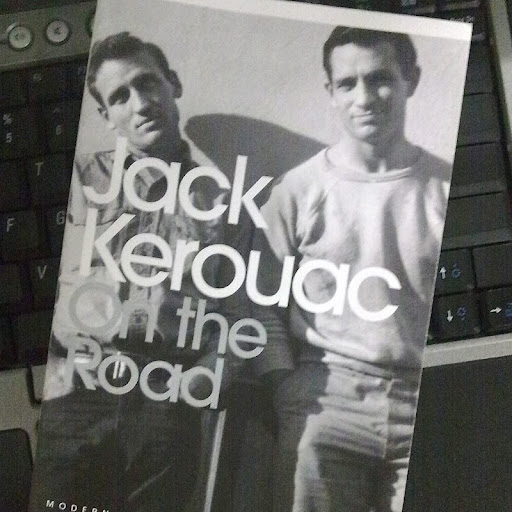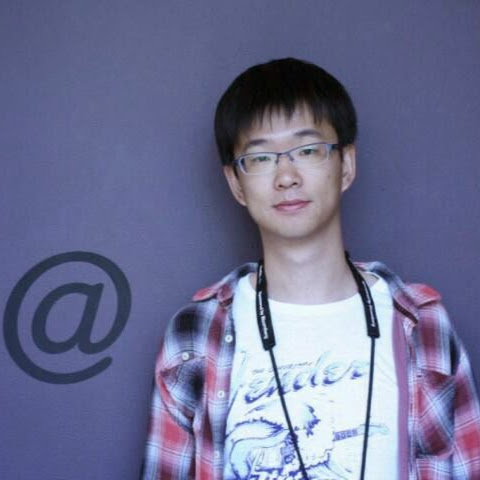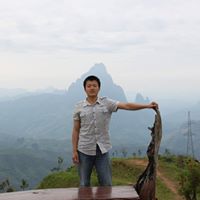Qiang Chen
age ~59
from Chester, PA
- Also known as:
-
- Qian G Chen
Qiang Chen Phones & Addresses
- Chester, PA
- Indianapolis, IN
- Denham Springs, LA
- Brockton, MA
- Philadelphia, PA
- Camden, NJ
Name / Title
Company / Classification
Phones & Addresses
Director
CIN NGAI MUSIC ASSOCIATION, INC
3 Bch St Lower Level, Boston, MA 02111
5 Oak St W #1009, Boston, MA 02116
5 Oak St W #1009, Boston, MA 02116
Us Patents
-
Design And Generation Of Human De Novo Pix Phage Display Libraries
view source -
US Patent:20100021477, Jan 28, 2010
-
Filed:Aug 25, 2009
-
Appl. No.:12/546850
-
Inventors:Ping Tsui - Berwyn PA, US
Lei Shi - Radnor PA, US
Jin Lu - Radnor PA, US
John Wheeler - Radnor PA, US
Brian Whitaker - Radnor PA, US
Lionella Borozdina-Birch - San Diego CA, US
Juan C. Almagro - Radnor PA, US
Bernard Amegadzie - Radnor PA, US
Mark Tornetta - Radnor PA, US
Ramachandra Reddy - Radnor PA, US
David M. Knight - Radnor PA, US
Jinquan Luo - Radnor PA, US
Raymond W. Sweet - Radnor PA, US
Qiang Chen - San Diego CA, US -
International Classification:A61K 39/40
C12N 15/63
C12N 1/21
C07K 14/195
C07K 16/12
C40B 40/02
C40B 30/04 -
US Classification:4241641, 4353201, 4352523, 530350, 5303871, 506 14, 506 9
-
Abstract:Described and claimed herein are combinatorial synthetic Fab libraries displayed on a phage pIX protein. The libraries were built on scaffolds representing the most frequently used genes in human antibodies, which were diversified to mirror the variability of natural antibodies. After selection using a diverse panel of proteins, numerous specific and high-affinity Fabs were isolated. By a process called in-line maturation the affinity of some antibodies was improved up to one hundred-fold yielding low pM binders suitable for in vivo use. This work thus demonstrates the feasibility of displaying complex Fab libraries as pIX-fusion proteins for antibody discovery and lays the foundations for studies on the structure-function relationship of antibodies.
-
System And Method For Controlling Physiological Noise In Functional Magnetic Resonance Imaging
view source -
US Patent:20230023393, Jan 26, 2023
-
Filed:Dec 23, 2020
-
Appl. No.:17/788340
-
Inventors:- Boston MA, US
Emily STERN - Boston MA, US
Hong PAN - Boston MA, US
Qiang CHEN - Baltimore MD, US -
International Classification:G01R 33/48
G01R 33/565 -
Abstract:A system and method is provided for controlling physiological-noise in functional magnetic resonance imaging using raw k-space data to extract physiological noise effects. The method can identify these effects when they are separable and directly reflects the artefactual effects on fMRI data, without the need for external monitoring or recording devices and to be compensated for via rigorous statistical analysis modeling of such noise sources. The physiological fluctuations may be treated as global perturbations presented around the origin point in a k-space 2D slice. Each k-space 2D slice may be acquired at a very short repetition time with an effective sampling rate to sample cardiac and respiratory rhythms through proper reordering and phase-unwarping techniques applied to the raw k-space data.
Resumes

Qiang Chen Pasadena, CA
view sourceWork:
California Institute of Technology
2011 to 2000
Postdoctoral Fellow University of Delaware
Newark, DE
2008 to 2011
Research Assistant Ecole Polytechnique
Paris (75)
Jun 2008 to Sep 2008
Research Assistant Nanjing University of Technology
Nanjing, CN
Sep 2001 to Mar 2004
Research Assistant
2011 to 2000
Postdoctoral Fellow University of Delaware
Newark, DE
2008 to 2011
Research Assistant Ecole Polytechnique
Paris (75)
Jun 2008 to Sep 2008
Research Assistant Nanjing University of Technology
Nanjing, CN
Sep 2001 to Mar 2004
Research Assistant
Education:
University of Delaware
Jul 2006 to Sep 2011
Ph.D. in Applied and Computational Mathematics University of Toledo
Aug 2004 to Jun 2006
M.S. in Mathematics Nanjing University of Sci. and Tech.
Sep 1997 to Jun 2001
B.S. in Computational Mathematics
Jul 2006 to Sep 2011
Ph.D. in Applied and Computational Mathematics University of Toledo
Aug 2004 to Jun 2006
M.S. in Mathematics Nanjing University of Sci. and Tech.
Sep 1997 to Jun 2001
B.S. in Computational Mathematics
Skills:
C++, SAS, MATLAB, FORTRAN, Data Structure, Algorithm

Qiang Chen Wayland, MA
view sourceWork:
Monsanto Company
Cambridge, MA
2008 to 2012
Scientist University of Massachusetts Medical School
Worcester, MA
2006 to 2008
Postdoctoral Research Associate University of Vermont
Burlington, VT
2004 to 2006
Postdoctoral Research Associate
Cambridge, MA
2008 to 2012
Scientist University of Massachusetts Medical School
Worcester, MA
2006 to 2008
Postdoctoral Research Associate University of Vermont
Burlington, VT
2004 to 2006
Postdoctoral Research Associate
Education:
University of Vermont
Burlington, VT
1999 to 2004
Ph.D. in Microbiology and Molecular Genetics Fudan University
1991 to 1996
B.S. in Microbiology and Microbiological Engineering
Burlington, VT
1999 to 2004
Ph.D. in Microbiology and Molecular Genetics Fudan University
1991 to 1996
B.S. in Microbiology and Microbiological Engineering
Isbn (Books And Publications)

Flickr
Myspace
Googleplus

Qiang Chen
Work:
UFL

Qiang Chen
Tagline:
Reading!

Qiang Chen

Qiang Chen

Qiang Chen

Qiang Chen

Qiang Chen

Qiang Chen
News

Sea life bounced back fast after the 'mother of mass extinctions'
view source- In 2012, palaeontologists Zhong-Qiang Chen at the China University of Geosciences and Mike Benton at the University of Bristol, UK, hypothesized2 that ecosystem recovery happened in steps, with a pyramid-shaped food web building up one level at a time from self-sufficient organisms to apex predat
- Date: Feb 09, 2023
- Category: Science
- Source: Google

'Plantibodies' drugs advance
view source- Developing new drugs is a very expensive and risky business, said Qiang Chen, a professor at Arizona State University currently researching the use of plant-farmed antibodies against the West Nile virus.
- Date: Aug 17, 2014
- Category: Health
- Source: Google

Tobacco-grown antibodies promising in the fight against Ebola
view source- Growing antibodies in plants is safer than in mammals, because plants are so far removed, so if they had some sort of plant virus we wouldnt get sick because viruses are host-specific, said Qiang Chen, a plant biologist at Arizona State University in Tempe, Arizona.
- Date: Aug 06, 2014
- Category: Health
- Source: Google

Earth took 10 million years to recover from biggest extinction
view source- With less than 10 percent of plants and animals surviving and a huge number of biological niches left unfilled, a quick bounce back could seem likely, but according to Dr Zhong-Qiang Chen, from the China University of Geosciences in Wuhan, and Professor Michael Benton from the University of Bristol,
- Date: May 28, 2012
- Category: Sci/Tech
- Source: Google

Earth took 10 million years to recover from mass extinction
view source- "It is hard to imagine how so much of life could have been killed, but there is no doubt from some of the fantastic rock sections in China and elsewhere round the world that this was the biggest crisis ever faced by life." says Dr Zhong-Qiang Chen, from the China University of Geosciences in Wuhan.
- Date: May 28, 2012
- Category: Sci/Tech
- Source: Google

Earth Took 10 Million Years To Recover From Its Greatest Mass Extinction
view source- New evidence is suggesting a recovery that took 10 million years. This new research was done by Dr Zhong-Qiang Chen, from the China University of Geosciences in Wuhan, and Professor Michael Benton from the University of Bristol. It has just been published in the journal Nature Geoscience.
- Date: May 28, 2012
- Category: Sci/Tech
- Source: Google

Earth took 10 million years to recover from mass extinction, says study
view source- The review, by Dr Zhong-Qiang Chen, from the China University of Geosciences in Wuhan, and Professor Michael Benton from the University of Bristol, found the delay to recover from the extinction was due to two factors.
- Date: May 28, 2012
- Category: Sci/Tech
- Source: Google

Earth took '10 mn yrs to recover from greatest mass extinction'
view source- Recent evidence for a rapid bounce-back is evaluated in a new review article by Dr Zhong-Qiang Chen, from the China University of Geosciences in Wuhan, and Professor Michael Benton from the University of Bristol.
- Date: May 28, 2012
- Category: Sci/Tech
- Source: Google
Youtube

Qiang Chen
view source
Qiang Chen
view source
Chen Qiang Chen Qiang
view source
Qiang Chen
view source
Qiang Chen
view source
Qiang Chong Chen
view source
Hg Qiang Chen
view source
Qiang Chen
view sourcePlaxo

chen qiang
view sourceScarborough, ON

Qiang Chen
view sourceardexchina

Qiang Chen
view sourceDirector of QC Systems at Alexza Pharmaceuticals
Classmates

Qiang Chen
view sourceSchools:
Brier Elementary School Fremont CA 1978-1982
Community:
Karen Englund, Jennifer Vargas, Suzanne Cole

Brier Elementary School, ...
view sourceGraduates:
Qiang Chen (1978-1982),
Sylvia Lam (1999-2003),
Synnora Bettencourt (1984-1989),
Lea Nelson (1996-1997),
Sandra Kleinman (1964-1966)
Sylvia Lam (1999-2003),
Synnora Bettencourt (1984-1989),
Lea Nelson (1996-1997),
Sandra Kleinman (1964-1966)
Get Report for Qiang Chen from Chester, PA, age ~59















